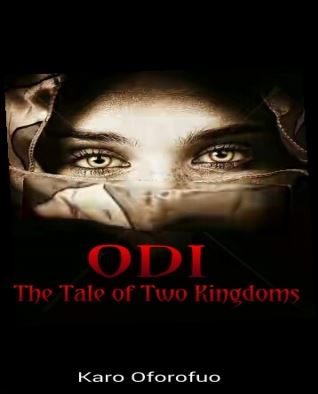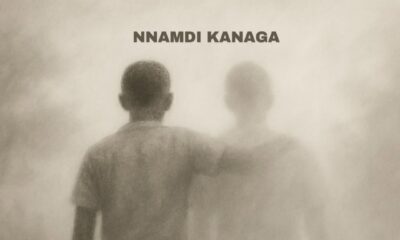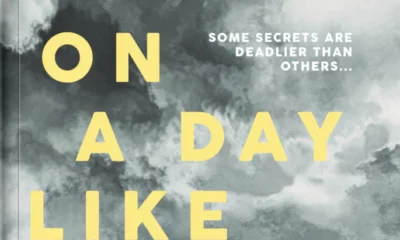Features
#LiterallyWhatsHot: Exploring Karo Oforofuo’s Alternate Earth in “Odi: The Tale of Two Kingdoms”
 Wands, enchanted trees, and dragons are a few of my favorite things. The speculative genre gets me every time. It’s one genre which I feel is never fully explored in African literature, though many of us believe in the supernatural and have overactive imaginations. I think more can be done in way of African speculative fiction, but I’ll leave that discussion for another day.
Wands, enchanted trees, and dragons are a few of my favorite things. The speculative genre gets me every time. It’s one genre which I feel is never fully explored in African literature, though many of us believe in the supernatural and have overactive imaginations. I think more can be done in way of African speculative fiction, but I’ll leave that discussion for another day.
Karo Oforofuo is one of the few authors who has not been afraid to out rightly delve into speculative fiction. Her book, “Odi: The Tale of Two Kingdoms” isn’t the normal surface exploration of the Other. Its pages tell of a glorious world filled with shape-shifters, dream lovers, and dark magic that’d make Voldemort proud.
The real story starts in our world when the heroine, Ove, meets Omar, a strange man who says her help is needed to save another realm. Though scared and without a clue what the man is talking about, Ove agrees to help. She is transported to Odi kingdom where she finds a land already devastated by Abentu, an evil monarch from a neighboring kingdom.
Ove is told she is originally from Odi, but she has no memories of this kingdom which she jointly rules with a twin sister, Natah. Her loins heat up when she meets her bitter ex-fiancé Katomo, but that’s about it. No memory. However, when she finally gets help from a magician called Moyem, she finds herself reliving her alternate life.
With her past unfolding quickly, she is expected to rein in overwhelming powers and find a way to save her people. Her memory slowly returns, replacing whatever she had of the normal world. And, in collaborating with all sorts to help save the land, hidden truths are uncovered which shake Odi’s foundations.
For its gloriously complicated and well-woven history, Oforofuo’s Odi is a world I’d love to visit, although I’d rather not live there as I’m no warrior. Oforofuo further garnishes the world by incorporating alliances with the Nri, Nupe, and Borgu civilizations into Odi’s history. Her placement of women at the helm of leadership is also impressive because it helps disperse the belief that African women did not wield tangible political power in ancient traditional settings.
In Oforofuo’s book, no blade of grass is just a blade of grass. The amount of thought put into every piece of information is impressive. It shows the author is aware that most information in a work of fiction should strive to enhance the reading experience or advance the plot. Her story has no loose ends and the plot is seamless. Save for a few rushed revelations, I’d say this is an excellent book.
I wish more African speculative fiction writers would attempt to build worlds instead of dragging their characters through earth’s broken system. Since Karo is already ahead of her peers, maybe she could replace George Lucas. We could really do with our own Westeros.
Want an e-copy of Odi: The Tale of Two Kingdoms? It’s available here on the OkadaBooks Store. Happy reading!
 Chiamaka Onu-Okpara is a freelance book editor who has experience editing fiction, creative non-fiction, and academic documents (Social Sciences and Humanities). She also writes fiction and poetry and has been published in Ake Review, Apex Magazine, and The Kalahari Review amongst other places. Her first poem is forthcoming in Strange Horizons.
Chiamaka Onu-Okpara is a freelance book editor who has experience editing fiction, creative non-fiction, and academic documents (Social Sciences and Humanities). She also writes fiction and poetry and has been published in Ake Review, Apex Magazine, and The Kalahari Review amongst other places. Her first poem is forthcoming in Strange Horizons.





















